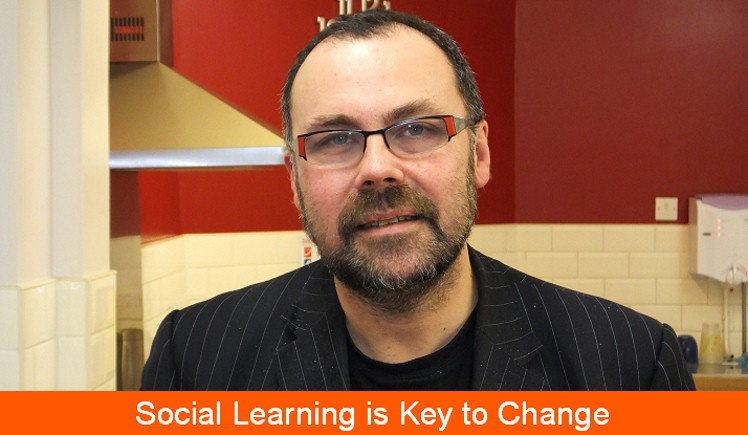
Rev Jim McCartney
Executive Director & Founder
Social learning is embedded in the fabric of our communities. This creates meaning and knowledge from social influences woven into cognitive processes.Equally, it is deeply encoded in memory for utilisation at a later stage in the interpretation of our world. THOMAS is skilled in the cultivation of positive socialisation. We work with the premise of Bandura’s social learning theory (Bandura 1977), combining the socio sphere of role models triggering new constructs of rational thinking with replacement behaviours. This conquers negative actions as defined by Ellis’ REBT concept (Ellis 2007). Hence the social level is the door for learning moving into a higher level of memory and cognitive processing.
Individual responsibility is needed for the change process but significantly aided by the support of the community members. Equally, fundamental to our recovery model are the principles of the 12 Steps, culminating in a capital conscious awareness of powerlessness and a belief in a higher power- God. The notion of God does not sit comfortably with evolutionary theorists and behavioural analysts who attribute the ubiquity of a belief in God to the intentional stance of mental construction (Dawkins 2006). I firmly disagree with this stance. I have worked in this field for over 20 years and I see the overwhelming benefits of the psychosocial model as it elevates the social context and ignites the change agent in the facilitation of cognitive technique.
However, it is restricted. The belief in the higher power of God takes our service users into the intrinsic force of rational conscience and gives liberation to the mind and soul. The spiritual resource of God, manifest in the NA/AA recovery movements across the world breaks into the fragility of humanity with an epistemological relevance in tackling addictive behaviours.
Human experience is a valuable starting place for change. We can respond to it in two ways. Bury it and exist or hold it and live. In THOMAS I see an incredibly courageous group of people facing the reality of their truth. Inextricably intertwined with this process are the negative aspects of behaviours conflicting with new thinking. However, through perseverance and meaningful orientated experiences of the social group, cognitively processed, retained and retrieved, new behaviours become reality. Nevertheless, that belief in the higher power of God, takes our service users into a higher realm of functioning, where psychological theory has limitation.
References
Bandura, A. (1977). Social learning theory. Englewood Cliffs, NJ: Prentice Hall
Dawkins, R. (2006) The God delusion. Boston Houghton Miffin
Ellis.,A. (2007) Overcoming destructive beliefs, Feelings, and behaviours: New directions for rational emotive behaviour therapy; Prometheus Books